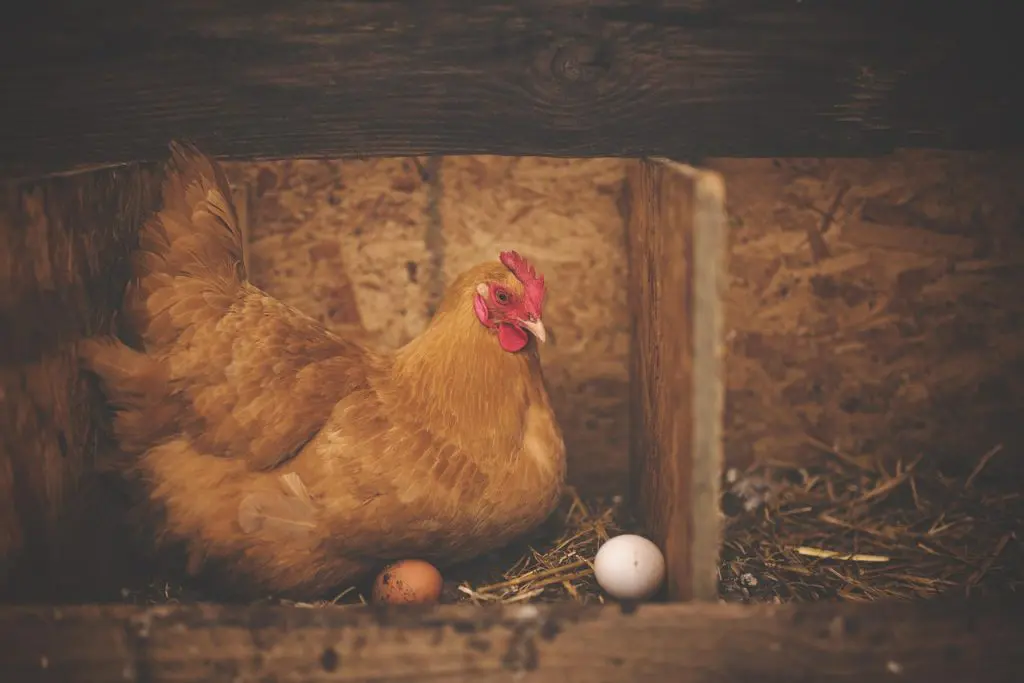
DAERA Launches £250,000 Competition to Find Sustainable Solutions for Poultry Layer Manure The Department of Agriculture, Environment and Rural Affairs (DAERA) has launched a new £250,000 Small Business Research Initiative (SBRI) competition focused on the sustainable management of poultry layer manure in Northern Ireland. This new initiative—the Sustainable Utilisation of Layer Manure (SULM) competition—aims to […]
The Department of Agriculture, Environment and Rural Affairs (DAERA) has launched a new £250,000 Small Business Research Initiative (SBRI) competition focused on the sustainable management of poultry layer manure in Northern Ireland.
This new initiative—the Sustainable Utilisation of Layer Manure (SULM) competition—aims to drive innovation in handling nutrients from poultry manure, especially phosphorus (P), to reduce environmental harm and unlock new economic opportunities.
Current phosphorus management technologies in agriculture remain limited in accessibility or scalability. Areas ripe for innovation include:
Biological treatments (e.g. microbial digestion to alter nutrient profiles),
Advanced separation technologies (e.g. solid-liquid separation to concentrate phosphorus),
Chemical precipitation (e.g. forming recoverable compounds like struvite),
On-farm processing systems compatible with small- to mid-scale operations.
Solutions that reduce manure transport costs, enhance nutrient efficiency, or enable safe export of excess phosphorus would offer tangible benefits to farmers and regulators alike.
Layer manure, a by-product of egg production, contains high levels of phosphorus, which can contribute to environmental issues such as water pollution if not managed properly. The SULM competition seeks practical and scalable solutions to remove excess phosphorus from the Northern Ireland agricultural nutrient cycle.
This effort builds on the success of DAERA’s existing Sustainable Utilisation of Livestock Slurry (SULS) programme and demonstrates the department’s ongoing commitment to improving nutrient management and supporting green innovation across the agri-food sector.
Launching the competition, Minister Muir said:
“This SBRI competition represents a vital step in addressing the nutrient challenges posed by poultry layer manure. By supporting innovation in this space, we aim to reduce phosphorus loading on our land and support a sustainable layer sector across Northern Ireland.”
Phosphorus is a key nutrient for plant growth but becomes an environmental hazard when overapplied or poorly managed. In agricultural regions, phosphorus runoff from manure can lead to:
Eutrophication of lakes and rivers,
Algal blooms, some of which are toxic,
Oxygen depletion, threatening fish and aquatic biodiversity.
In Northern Ireland, many catchments already suffer from nutrient enrichment, making targeted interventions—such as those enabled by the SULM competition—crucial for achieving Water Framework Directive targets and restoring ecological health in freshwater systems.
Beyond environmental compliance, layer manure represents a circular economy opportunity. Phosphorus is a finite, mined resource, with global reserves concentrated in a few geopolitical regions. Recovering phosphorus from manure could:
Reduce dependency on imported mineral fertilisers,
Support on-farm nutrient recycling,
Create value-added products, such as phosphorus-rich compost or struvite pellets.
The SULM competition could spark innovations that transform manure from a waste burden into a profitable resource stream.
While technological solutions are key, success also depends on policy alignment and behavioural adoption. Questions worth considering include:
Will new phosphorus solutions be compatible with existing manure storage and spreading systems?
Can cost-effective models be developed for small farms, which dominate Northern Ireland’s egg production sector?
How will supply chain actors (egg processors, retailers) support adoption through procurement standards or sustainability incentives?
Collaboration between farmers, agri-tech innovators, and government will be essential to ensure that solutions are practical, accepted, and integrated into real-world systems.
The total competition budget is up to £250,000, with a maximum of five successful applicants each eligible to receive up to £50,000 to demonstrate the technical feasibility of their proposed solution.
Key information for applicants:
Deadline: Applications must be submitted by 15 August 2025.
Information Event: An online information session will take place on 10 July 2025, from 10:00 to 11:30 GMT. This session will cover the competition’s scope, eligibility requirements, and application process.
Proposals should focus on practical, economically viable solutions for phosphorus reduction in poultry layer manure. These innovations should be capable of being scaled up to meet the needs of the Northern Ireland layer sector and must show both technical feasibility and environmental sustainability.
DAERA’s SULM competition represents a significant investment in the future of sustainable agriculture in Northern Ireland. By encouraging innovation and supporting scalable nutrient management solutions, this initiative not only addresses environmental concerns but also helps secure a more resilient and economically viable layer poultry sector.
Researchers, businesses, and innovators are encouraged to bring forward their ideas and contribute to a more sustainable future for Northern Ireland’s agricultural landscape.
At All-Ireland Sustainability, we’re committed to building a greener, fairer island—together. Stay informed on the latest environmental initiatives, community action, and policy developments shaping sustainability across Ireland, North and South.
👉 Sign up for our newsletter today and be the first to hear about upcoming events, expert insights, and ways to get involved.
Whether you’re a seasoned advocate or just starting your journey, new members are always welcome—your voice matters.
Subscribe now and be part of the All-Ireland Sustainability network.